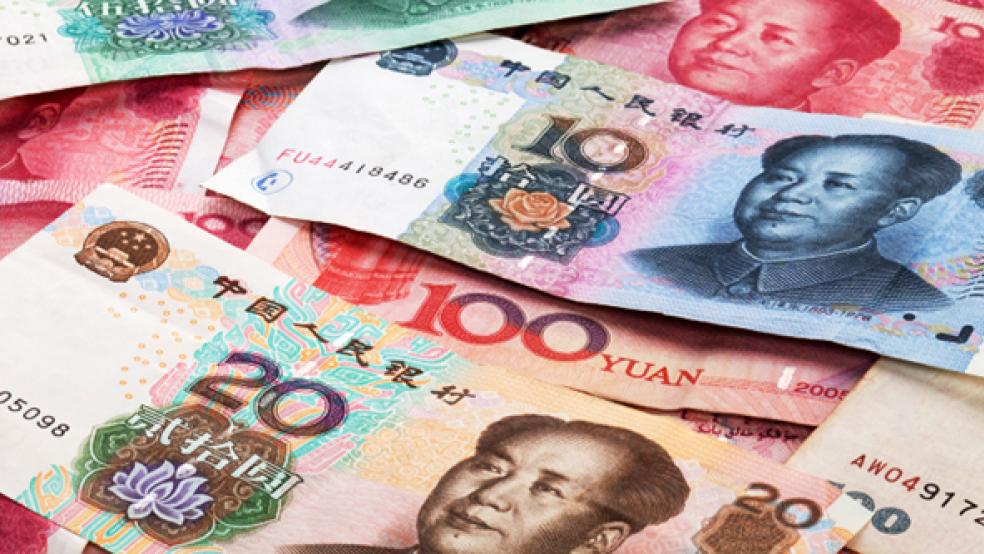It’s all China’s fault! That’s the take-away from the Senate, which is enthusiastically pushing a bill designed to punish China for purposefully undervaluing its currency. The future of the legislation is unclear, since neither the House nor the White House has signed on, but the message is crystal clear – “Don’t blame us for 9 percent unemployment.”
It seems only yesterday that we were lectured on Depression Economics 101: under NO circumstances should we repeat the mistakes of the 1930s by raising taxes and imposing tariffs. So what are our hapless leaders doing? The president is in a fever to raise taxes and Congress can’t wait to impose tariffs on Chinese imports. Talk about no grown-ups in the room!
This eagerness to shoot ourselves in both feet is, of course, all about the 2012 elections. President Obama has discovered that most people favor higher taxes – as long as someone else is paying them. Congress, as represented by New York Senator and bill co-sponsor Chuck Schumer, D-N.Y., fears an angry electorate -- an electorate clobbered by years of stupid policies that funneled investment in the wrong direction and cost our country jobs. An electorate he hopes, given the proper nudge, will decide that all our woes stem from China’s cheating.
Just for the record, China does cheat. Beijing has for decades pursued growth with admirable single-minded focus, and has used an undervalued currency to help drive exports. The Chinese also engage in illegal subsidies, cyber-hack their way into all kinds of secret places and look the other way when their companies steal intellectual property. (Production of fakes, mostly in China, has been estimated to cost the U.S. 750,000 jobs.) Beijing has for years embraced a no holds barred and no apologies approach to international competition. As a result, China is now the world’s leading exporter and the number two economy in the world.
As much as Americans may want to see China’s knuckles rapped, this could be the absolute worst time for retaliatory measures. Beijing, too, is alarmed about its enormously unbalanced economy, which depends far too much on exports and government spending. Personal consumption accounts for only 37 percent of GDP, compared with 70 percent in the U.S. Both are extremes.
The Chinese have seen the risks of being overly dependent on world markets. In the teeth of the recession, global trade shrank by 10.7 percent - a contraction not seen since the 1930s. Morgan Stanley’s Stephen Roach notes in a recent report to clients that China’s exports soared at an annualized rate of 26 percent in July 2008 and then plummeted to a 27 percent decline by February 2009. The hit to employment – Roach says some 20 million migrant workers lost their jobs in Guandong province alone – frightened Chinese authorities, who equate idle workers with social unrest.
Beijing is confronting these issues through reengineering the economy. The newly adopted five-year plan emphasizes building a consumer base. This is great news for U.S. companies, who have long looked to China to gobble up Doritos, Pampers and other consumer goods.
Until now, increased demand from China has been overshadowed by the insatiable U.S. appetite for low-cost goods, which will doubtless continue and which led to $365 billion in imports in 2010. The balance is shifting, however; U.S. exports to China have grown faster than imports since 2006. Our exports to China soared 468 percent from 2000 to 2010, to a total of nearly $92 billion ($118 billion if Hong Kong is included). That compares with an increase of just 55 percent in goods shipped to the rest of the world, according to the U.S.-China Business Council, which promotes trade between the two countries and adamantly opposes the currency bill. China is now the third largest importer of U.S. goods.
However, the Council points out that our share of the China import market has shrunk to 7 percent today from 10 percent in 2000; they reasonably suggest that rebuilding our market position might be more constructive than sparking a trade war over currency levels.
In promoting the currency bill, Sen. Schumer and others have relied on a report from the Economic Policy Institute that identifies 2.8 million jobs lost to China’s currency manipulation over the past decade. In related testimony before Congress, author Robert Scott charged that multinational corporations have underreported their investment in China – investment that has shifted output overseas, taking advantage of China’s low cost structure supported by an undervalued yuan. However, even Scott admits that other factors are responsible for U.S. job losses. “The United States lags far behind other countries in the use of industrial policies and other types of economic development initiatives, such as workforce development and training, publicly supported R&D, and also the use of preferential public procurement policies,” he said in March. He might have added: “Get in the game, U.S.”
The US-China Business Council claims the EPI report erroneously assumes production not sent to China would have remained in the U.S. On the contrary, they argue, if costs in China were higher, production would have moved to other low-wage countries such as Vietnam or Mexico.
Our largest companies do protect China, as Scott suggests. They are desperate to access the growing consumer appetites in that country, and not interested in souring their opportunities by pursuing aggressive redress of unfair trade practices. Our government should not resort to measures that might cause China to retaliate against our exporters, but should adopt policies that encourage investment and production here at home. Instead of investigating, suing, fining, taxing and otherwise hampering our industries, President Obama should fire up the business community and, in partnership, push to out-compete our rivals, including China. Unfortunately, such a notion is as foreign as Mandarin to this White House.



